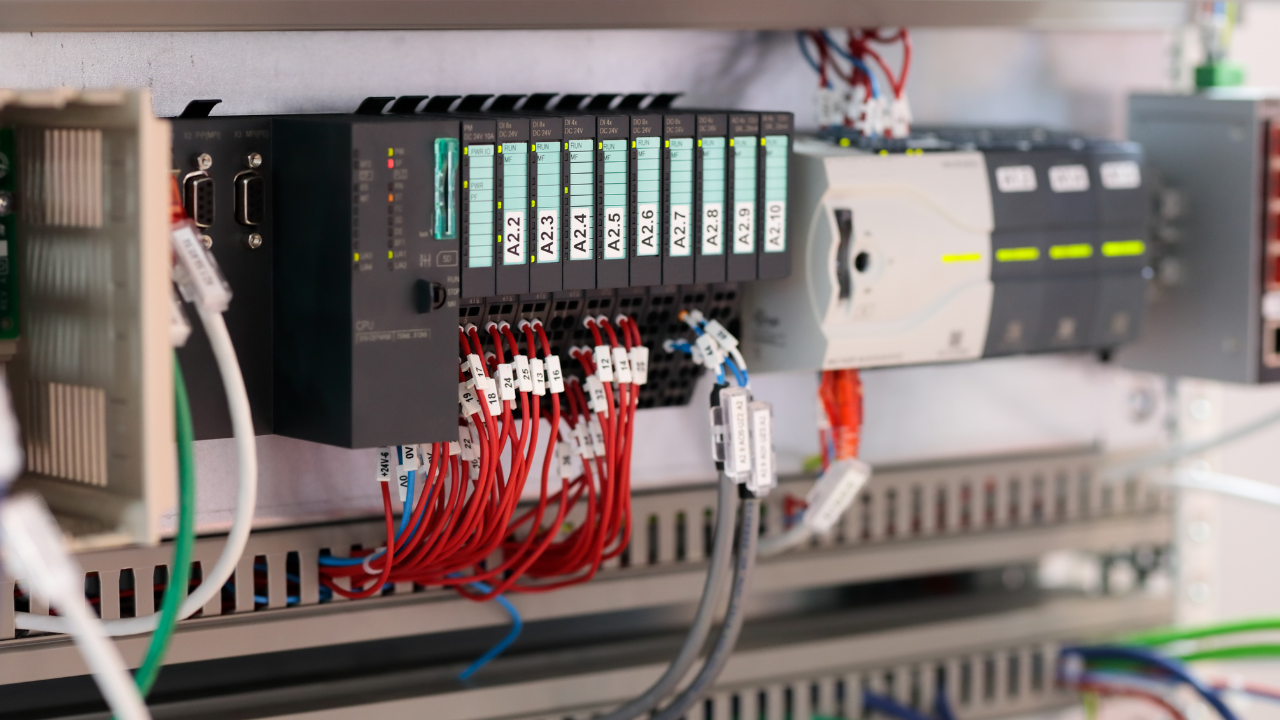Unlocking the Future of ICS Cybersecurity: The Power of Machine Learning Integration
The integration of Machine Learning (ML) into Industrial Control Systems (ICS) cybersecurity represents a groundbreaking approach to protect critical infrastructure from evolving cyber threats. ML offers proactive threat detection, self-adaptation to dynamic environments, and reduced false positives. The process involves data collection, processing, model selection, training, integration, and continuous learning. Challenges include understanding ICS architecture, ensuring data privacy, and addressing false positives. Despite challenges, integrating ML into ICS cybersecurity holds immense promise for securing critical systems in the digital age.
ICS Cybersecurity and Insights from "Security in Software Defined Networks: A Survey": Bridging the Digital Divide
In the pursuit of safeguarding digital infrastructures, this essay bridges insights from Industrial Control Systems (ICS) cybersecurity and Software Defined Networks (SDN) security, as explored in the scholarly work "Security in Software Defined Networks: A Survey." Highlighting the convergence of ICS and SDN security paradigms, the essay delineates strategies to fortify networks against cyber threats. Central themes include centralized control vulnerabilities, comprehensive vulnerability scrutiny, adoption of best practices, and unified defense mechanisms. By amalgamating knowledge from diverse domains, a robust defense strategy emerges to thwart cyber adversaries and ensure the resilience of digital sanctuaries.
Optimizing ICS Cybersecurity Using Network Security Virtualization: A Comprehensive Guide
In the rapidly evolving digital landscape, Industrial Control Systems (ICS) cybersecurity is crucial to safeguard critical infrastructure. "A First Step Toward Network Security Virtualization: From Concept To Prototype" offers groundbreaking insights into merging network security virtualization with ICS, ensuring robust defense mechanisms against cyber threats. This guide provides a step-by-step approach to mastering network security virtualization for ICS, from crafting a virtual environment to prioritizing real-time monitoring and integrating legacy systems. By following these steps and incorporating continuous testing and feedback integration, organizations can establish a resilient security posture against evolving cyber threats.
Unraveling the Gaps in NIST SP 800-82 r3 for Industrial Control Systems Security
This article delves into critical areas for enhancing the National Institute of Standards and Technology (NIST) NIST SP 800-82 r3 guide for Industrial Control Systems (ICS) security. It explores emerging threats, supply chain risks, responses to coordinated attacks, quantum computing implications, insider threat mitigation, physical-cybersecurity convergence, sector-specific recommendations, legacy system protection, cyber awareness, proactive security approaches, and regulatory overlaps. By addressing these nuances, organizations can fortify their ICS cybersecurity posture in today's dynamic digital landscape.
Unveiling Lessons in ICS Cybersecurity from the TV Show "Lost"
Exploring the parallels between the TV series "Lost" and Industrial Control Systems (ICS) cybersecurity reveals valuable lessons for professionals in the field. From understanding system complexity to fostering communication and collaboration, each episode offers insights applicable to safeguarding critical infrastructure. This blog post delves into ten key lessons drawn from the show, highlighting the importance of planning, adaptability, and continual learning in the ever-evolving landscape of cybersecurity.
Mastering IEC 62443-4-2 Security for Product Suppliers: A Practical Guide with Real-World Examples
In the realm of industrial control systems cybersecurity, the IEC 62443-4-2 standard emerges as a guiding light. This comprehensive guide delves into actionable strategies under this standard, covering system architecture, role-based access control, device integrity, data protection, network security, patch management, incident response, monitoring, logging, and secure development lifecycle. Practical examples illustrate each strategy, empowering organizations to fortify their industrial systems against evolving cyber threats. Discover the future blueprint of industrial cybersecurity and anchor your systems in unmatched security with IEC 62443-4-2.
Lessons in ICS Cybersecurity from the Edward Snowden Whistleblower Case
Learn essential cybersecurity lessons from the Edward Snowden whistleblower case and apply them to safeguard Industrial Control Systems (ICS). Explore insights on insider threats, data classification, encryption, whistleblower protections, monitoring, supply chain management, and ethical considerations to bolster ICS cybersecurity defenses and protect critical infrastructure.
Ensuring Robust Cyber Security for Offshore Platforms: Best Practices for PLC Network Encryption and Access Controls
Offshore drilling platforms rely heavily on advanced technologies, making robust cybersecurity crucial. This blog post explores the importance of PLC network encryption and access controls in mitigating cyber threats. Learn best practices, including data encryption protocols, role-based access control, and security-by-design principles, to safeguard critical processes and infrastructure. With proper implementation of these techniques, offshore operations can maintain efficiency and safety amidst evolving cyber risks.
Safeguarding Offshore Drilling Platforms: Crafting a Strategy for Upgrading Network Topology Hardware with ICS Cyber Security
Upgrade the network topology hardware on old offshore drilling platforms while prioritizing cyber security. Follow these essential steps to ensure operational efficiency and safeguard against cyber threats.
ICS Network Anomaly Detection: Enhancing Cybersecurity in Industrial Environments
Enhance your industrial cybersecurity with insights into ICS network anomaly detection. Learn its significance, challenges, methodologies, and role in bolstering cybersecurity within industrial environments.
Fortifying Industrial Systems: Setting Up and Securing OPC UA for ICS Cybersecurity
This blog post provides a comprehensive guide on setting up and securing OPC UA for Industrial Control Systems (ICS) cybersecurity. It covers steps such as requirements assessment, network architecture design, user authentication, encryption, and network monitoring. By implementing these measures, organizations can protect critical operations from cyber threats and ensure the resilience of their industrial control systems.
Synergies of Parenthood and Professional Growth: Becoming a Better ICS Cybersecurity Consultant Through Single Fatherhood
This essay reflects on the author's journey as a single father raising a small daughter and how the lessons learned from parenthood have influenced his career as an Industrial Control Systems (ICS) cybersecurity consultant. It highlights key skills and insights gained from single fatherhood, such as empathy, adaptability, communication, attention to detail, time management, critical thinking, and adopting a holistic perspective, and demonstrates how these skills have seamlessly translated into his professional role. Through personal anecdotes and professional reflections, the author emphasizes the profound impact of parenthood on his growth as a skilled and compassionate cybersecurity consultant dedicated to safeguarding critical infrastructure.
Productivity in Industrial Control Systems Cybersecurity Engineering
In an era marked by technological advancement and interconnected systems, Industrial Control Systems (ICS) cybersecurity engineering plays a pivotal role in safeguarding critical infrastructure. This essay delves into the concept of productivity in ICS cybersecurity engineering, emphasizing its significance and key contributing factors. It discusses proactive risk assessment, effective collaboration, continuous learning, automation, real-time monitoring, efficient incident response, and regular training. The significance of productivity lies in minimizing downtime, enhancing resilience, saving costs, preserving reputation, and ensuring compliance. Ultimately, productivity is essential for maintaining the security and functionality of industrial systems amid evolving cyber threats.
Deciphering IEC 62443: A Comprehensive Guide to Industrial Cybersecurity Standards
This blog post explores the significance of IEC 62443 standards in industrial cybersecurity, providing an in-depth analysis of its components, importance, and practical implications. Learn how these international standards address the unique challenges faced by industrial control systems (ICS) and discover their role in safeguarding critical infrastructure from cyber threats.
Charting Your Path: A Comprehensive Study Plan to Become an ICS Cyber Security Engineer
The essay provides a detailed study plan for aspiring Industrial Control Systems (ICS) Cyber Security Engineers. Divided into phases, it covers foundational education, technical expertise building, advanced specialization, practical application, continuous learning, and leadership development. By focusing on acquiring relevant education, hands-on experience, certifications, and ongoing research, individuals can progress towards becoming proficient professionals in the dynamic field of ICS cybersecurity.
Learning from "Blackhat" Movie: Insights for Industrial Control Systems Cybersecurity Engineers
In the cybercrime thriller "Blackhat," professionals in Industrial Control Systems (ICS) cybersecurity can find valuable lessons on collaboration, vulnerability assessment, threat detection, and ethical considerations. This essay explores how the movie portrays these aspects and their relevance to real-world cybersecurity challenges. By drawing insights from the film's narrative, ICS cybersecurity engineers can enhance their skills and contribute to safeguarding critical infrastructure from cyber threats.
The Impact of Industrial Topologies, ISA 99, and the Purdue Model on Cyber Security
This article explores the impact of industrial topologies, the ISA 99 standards, and the Purdue Model on enhancing cybersecurity in industrial systems. By understanding these frameworks, organizations can effectively mitigate cyber threats and vulnerabilities within critical infrastructures. The article discusses the significance of industrial topologies in identifying potential weak points and deploying targeted security measures. It also highlights how adherence to the ISA 99 standards offers a holistic approach to cybersecurity, emphasizing risk assessment and continuous monitoring. Additionally, the Purdue Model's hierarchical approach aids in building a resilient defense mechanism by implementing security controls at different levels and preventing lateral movement of attackers. Overall, these methodologies and frameworks empower industries to proactively mitigate risks, secure critical assets, and maintain the integrity of their systems amidst evolving cyber threats.
Safeguarding OPC UA: Navigating Cybersecurity Risks and Effective Penetration Testing
Enhance OPC UA cybersecurity with effective penetration testing and risk mitigation strategies. Explore key risks, essential tools, and steps for conducting thorough assessments in this comprehensive guide.
Troubleshooting Firewall Rulesets in Drilling Industrial Networks: Addressing Cyber Risks and Ensuring Operational Integrity
This essay delves into the crucial role of troubleshooting firewall rulesets in drilling industrial networks, emphasizing their significance in maintaining cybersecurity and operational integrity. It explores the complexities of these networks, the associated cyber risks, and strategies to mitigate vulnerabilities. By adhering to best practices, conducting regular audits, and fostering collaboration, drilling industries can navigate the evolving threat landscape and safeguard critical infrastructure.
Bolstering National Defense: The Crucial Role of IEC 62443 Framework Implementation in Safeguarding Against Cyberwar Threats
In an era dominated by digital connectivity, the threat of cyberwarfare looms large, posing significant risks to national security and economic stability. This essay explores the pivotal role of implementing the IEC 62443 framework in defending against cyberwar threats. It discusses the framework's defense-in-depth architecture, risk assessment methodologies, and strategic implications for national defense. By prioritizing cybersecurity and fostering international collaboration, nations can effectively safeguard critical infrastructure and ensure a secure digital future.




















